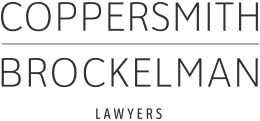In Business Taps Jill Chasson to Highlight New Overtime Rules
While many people were ringing in the new year with champagne and fireworks, businesses in Arizona and across the nation were rolling out compensation changes driven by the Department of Labor’s new overtime rules, which went into effect Jan. 1. Jill Chasson shared insight on these updates with In Business, providing an overview of the changes and tips for complying. Jill explained that the new rules increased the minimum salary requirement for exempt employees – the first update in 15 years – and increased the exemption salary threshold for highly compensated employees. She encouraged businesses to evaluate employees’ roles carefully, working with legal and human resources professionals to reclassify employees as needed. Jill noted that newly non-exempt employees may be paid hourly instead of by salary, must track their...
Read MoreRead More



